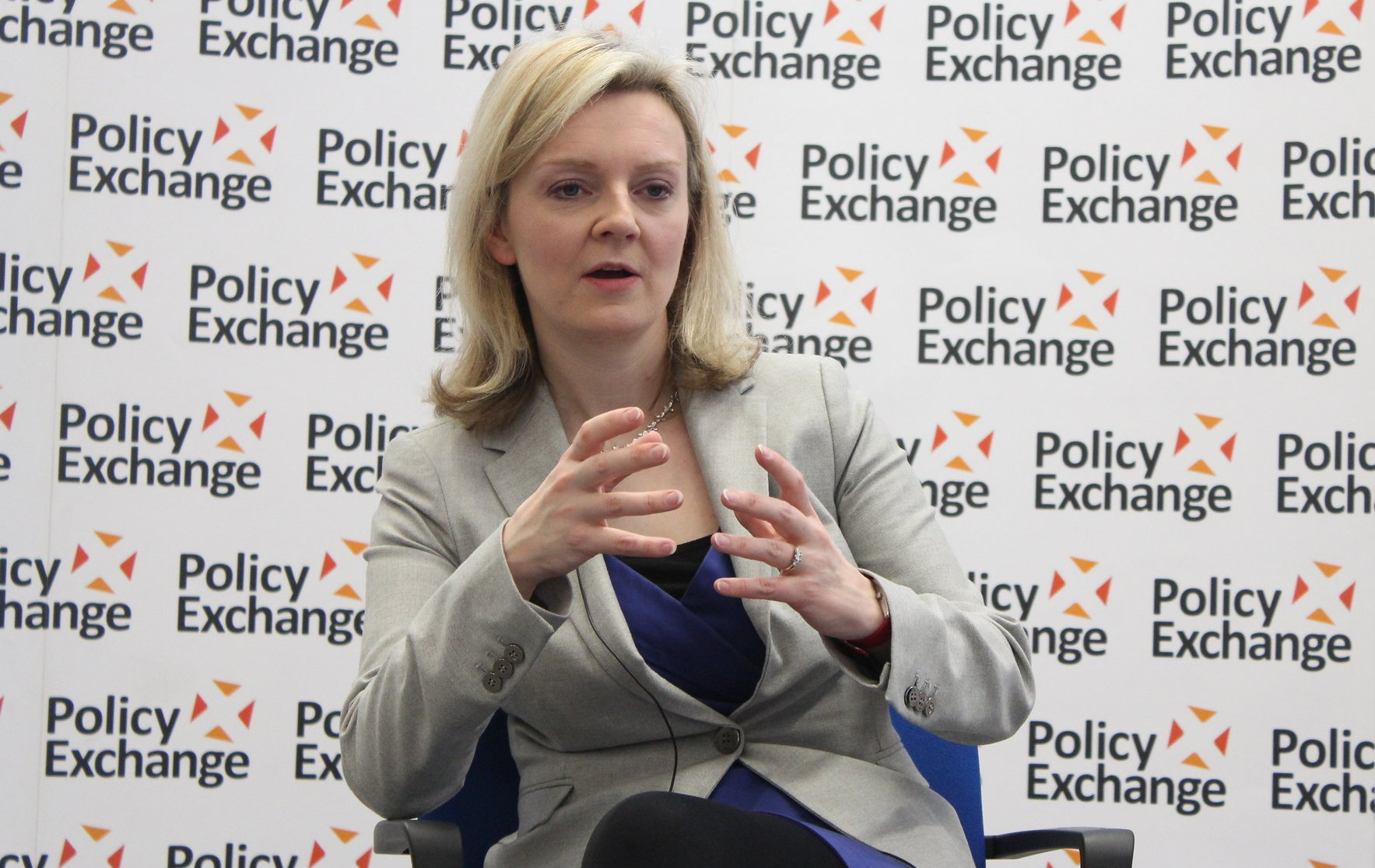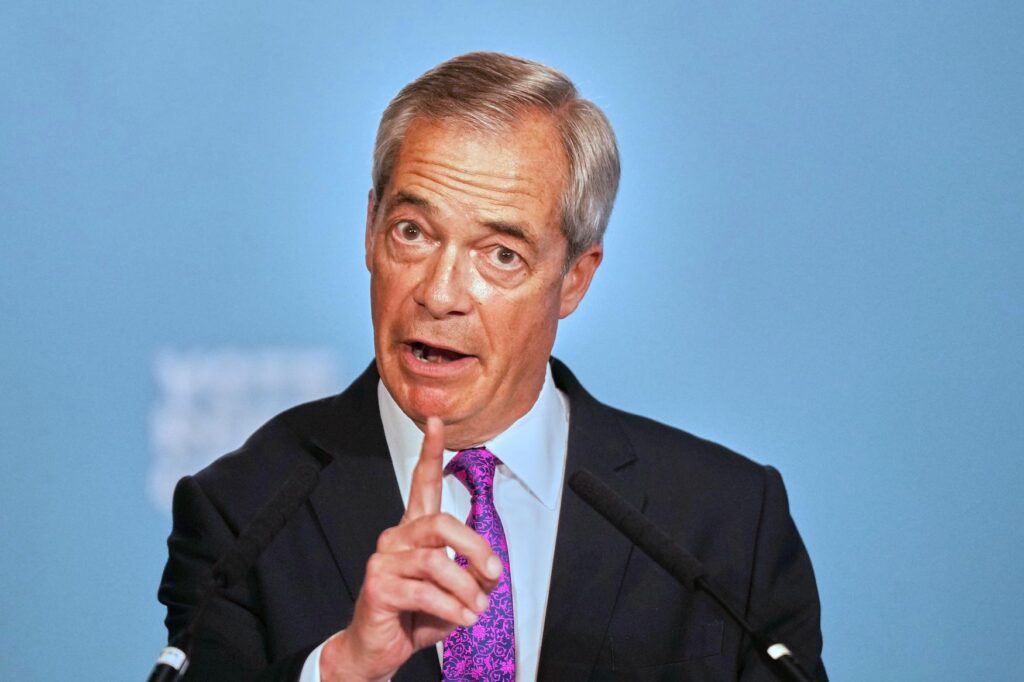Boris Johnson has retained a core of ministers linked to a lobbying network pushing to weaken the UK’s environmental regulations in his first cabinet reshuffle since the general election. But the day also saw a number of high-profile sackings, potentially weakening the network’s influence in Downing Street.
While there are few outright climate science deniers in Johnson’s cabinet, a number of ministers have strong ties to groups based in and around Westminster’s Tufton Street, with many special advisers (SPADs) being alumni of organisations attached to the address.
Tufton Street’s pro-leave, economically libertarian pressure groups have campaigned for the UK to abandon or roll back environmental regulations post-Brexit. Many of the groups have close links to funders of climate science denial, with some organisations taking donations from the fossil fuel industry.
We’ve plotted all the connections between Boris Johnson’s cabinet and the Tufton Street network in the interactive map below:
Appointed
Alok Sharma – Business Secretary and COP26 President
It’s going to be a busy year for former International Development Secretary Alok Sharma. He’s been handed the reins of both the Department for Business, Energy and Industrial Strategy (BEIS) and the Presidency of the UN climate summit, known as COP26, due to take place in Glasgow later this year.
The unexpected move comes two weeks after Claire Perry O’Neill was unceremoniously removed from the post, with Conservative Party grandees like Lord Hague and David Cameron turning down the job.
Sharma has called climate change “one of the most pressing issues facing the world” and celebrated UK aid being used to support flood-hit Mozambique, which he described as “one of the countries most vulnerable to climate change” earlier this week.
Help DeSmog keep track of the government’s next moves – become a patron today!
The Physics graduate has voted against the majority of climate-related policies analysed last year by DeSmog and the Guardian, and has received £15,000 in donations from Offshore Group Newcastle (OGN), which makes platforms for oil, gas and wind energy companies. OGN was previously owned by Ukranian energy tycoon Alexander Temerko who has held a range of commercial interests in fossil fuels. Last month, Sharma registered a £10,000 donation from Temerko’s AQUIND Limited, which is building an electricity interconnector between the UK and mainland Europe.
Although Sharma opposed Heathrow Expansion back in 2009, saying the project “would inflict huge damage to the environment and to the quality of life of millions of people”, he’s since become a vocal supporter of the scheme. In 2013, he called a proposal by the free-market Centre for Policy Studies for a four runway airport “innovative”.
George Eustice – Environment Secretary
Cornish MP George Eustice has been given the role of Environment Secretary after working as a junior minister in the Department for Environment, Food and Rural Affairs (DEFRA) since 2015.
The British Association for Shooting and Conservation (BASC) celebrated the appointment of this “real countryman”, under whom it anticipates a bright future.
According to the Guardian database, Eustice has one of the weakest records on climate change among MPs, scoring 0 percent thanks to his total absence of pro-environment votes. He also received a donation of £5,000 in 2015 from Neil Record, a director of climate science denial campaign group, the Global Warming Policy Forum.
Rishi Sunak – Chancellor of the Exchequer
Sajid Javid refused to stay on at the Treasury if his advisers couldn’t too, so high-flyer Rishi Sunak has taken his place. Sunak has been Chief Secretary to the Treasury since July and is a Boris Johnson loyalist. The former investment banker campaigned for Britain to leave the EU in 2016.
There are some signs of Sunak’s interest in environmental issues. He was a member of parliament’s Environment, Farming and Rural Affairs select committee for two years after being elected an MP in 2015. And according to his website, he’s in favour of diverting subsidies previously distributed through the EU’s Common Agricultural Policy to “public goods”, such as peatland restoration in his Yorkshire constituency, which would help tackle climate change.
But he’s also opposed many key climate-related votes in parliament, such as setting a decarbonisation target for the UK’s electricity supply and supporting Heathrow expansion.
Sunak has ties to the Centre for Policy Studies, a Tufton Street thinktank with a history of casting doubt on climate change and opposing solutions to the issue. In 2016, he wrote a report for the group advocating the creation of low-tax “free ports”, an idea that the Johnson government has since taken up.
Anne-Marie Trevelyan – International Development Secretary
The former Armed Forces Minister was a backbencher a mere seven months ago, but has been on the rise following Boris Johnson’s election in July last year.
Trevelyan was heavily involved in the pro-Brexit campaign, sitting on the board of Vote Leave in the run-up to the 2016 referendum, as well as being a founding member of the Conservatives for Britain pressure group. She has spoken at events organised at the Conservative Party conference by Tufton Street-associated free-market lobby groups, the Institute of Economic Affairs and the Taxpayers’ Alliance.
Trevelyan did not support any of the climate-related votes analysed by DeSmog and the Guardian, since entering parliament in 2015.
Retained
Those appointees will be joining a number of known-entities that have retained their place in Johnson’s cabinet.
Michael Gove – Duchy of Lancaster
Michael Gove has retained his place as a sort of middle-manager of the cabinet in his role as the Duchy of Lancaster. Speaking at an event about the UK’s hosting of the next annual UN climate talks earlier this week, Gove said the UK had a “moral responsibility” to lead on tackling climate change.
This is something of an evolution from his time as Education Secretary, when he planned to exclude climate change from the geography national curriculum, abandoning the plans after public outrage. In 2014, Gove also said he had “read with concern” a report by the climate science denial campaign group, the Global Warming Policy Foundation (GWPF), which accused “activist” teachers of trying to turn pupils into “foot soldiers of the green movement.”
Gove has two SPADs that used to work for Vote Leave: Henry Newman and Josh Grimstone. He is also very familiar with Shanker Singham, a Research Fellow at the Institute of Economic Affairs, which has received funding from oil giant BP. An undercover investigation last year revealed Singham, the Director of International Trade and Competition at the institute, regularly speaks with Gove. Singham is a former Washington lobbyist who has “unparalleled access” to UK ministers and has ties to multiple US organisations known for promoting climate science denial, including the Koch-funded Heartland Institute and the Heritage Foundation.
Jacob Rees-Mogg – Leader of the House of Commons
Despite largely being absent from the Tories’ general election campaign, Jacob Rees-Mogg has kept his job as Leader of the House of Commons.
The most hardline Brexiter in Johnson’s cabinet, Rees-Mogg is likewise the most explicit climate science denier. He has claimed “climate alarmism” is responsible for high energy prices, and that it is unrealistic for scientists to project future climate changes as meteorologists struggle to correctly predict the weather. In 2014, he was referred to the parliamentary standards watchdog for failing to disclose interests in a company with millions of pounds invested in energy companies when speaking in relevant debates.
Find out more about the links between Brexit and climate science denial on our interactive map.
Rees-Mogg is an advisor to Economists for Free Trade, a campaign group with strong ties to the right-leaning media advocating the benefits of a no-deal Brexit. The group has close ties with organisations working out of offices in and around Tufton Street, including the Taxpayers’ Alliance and Institute of Economic Affairs.
Rees-Mogg was also a long-time chair of the hardline Brexiteer grouping of MPs, the European Research Group. Another chair of that group, Suella Braverman, has just been appointed Attorney General, having previously served as a Brexit Minister under Theresa May.
Dominic Raab – Foreign Secretary
Dominic Raab has retained his position as Foreign Secretary as the UK tries to find its place in the world post-Brexit.
Raab served on the political advisory board of the campaign group Leave Means Leave, alongside a number of politicians with close ties to the GWPF including Owen Paterson, (now Lord) Peter Lilley, and Democratic Unionist Party (DUP) MP Sammy Wilson. The group was backed by libertarian Tories who have called for deregulation and pushed disinformation on climate change including Jacob Rees-Mogg, John Redwood, Christopher Chope and Ian Paisley.
Raab has published several articles for Tufton St resident, the Taxpayers’ Alliance, for which his SPAD Robert Oxley was a campaign director. Oxley also previously had high-profile jobs with former Tufton Street residents Vote Leave and Business for Britain.
Working alongside Raab at the Foreign Office will be Nigel Adams, who will be simultaneously a minister at the Department for International Development, further stoking rumours of a merger of the two departments. Adams has been a vocal advocate of biomass energy, having taken £50,000 worth of donations from the industry. He also tabled a bill in 2015 to scrap subsidies for onshore wind projects, a policy that was later adopted by the Conservative government.
Liz Truss – International Trade Secretary
Truss had initially been rumoured to be one of the major figures facing a sacking, but she has retained her role as Secretary of State at the Department of International Trade.
Truss has a slightly patchy record on climate action, having announced significant renewable energy subsidy cuts when Environment Secretary, despite “fully agreeing” that “climate change is happening.”
She set up the Free Enterprise Group, “a leading association of free-market orientated Conservative Members of Parliament”, whose administrative support comes from the Institute of Economic Affairs. The group, which has been inactive since 2017, has produced a number of reports, including one in 2012 by now Energy Minister Kwasi Kwarteng entitled “The Case for Aviation”, recommending further airport expansion.
Truss has three Tufton Street alumni as special advisors: Nerissa Chesterfield, former Institute of Economic Affairs Head of Communications, Sophie Jarvis, the Adam Smith Institute’s (ASI) former Head of Government Affairs, and Tom Clougherty, Head of Tax at the Centre for Policy Studies. Clougherty was previously Managing Editor at the Reason Foundation, a US-based climate science denying libertarian group, as well as Senior Editor at the Koch-funded Cato Institute.
Grant Shapps – Transport Secretary
Grant Shapps is staying on as Transport Secretary, having recently announced the government’s plans to ban the sale of petrol and diesel cars, possibly as early as within 12 years.
In 2016, the British Infrastructure Group (BIG), which Shapps chaired, claimed the lights would go out over Christmas in 2016 due to a lack of coal power (they didn’t). At the time, Shapps was quoted as saying, “it is clear that a perfect coincidence of numerous policies designed to reduce Britain’s carbon dioxide emissions has had the unintended effect of hollowing out the reliability of the electricity generating sector.” The claims were strongly rebutted by academics including Sussex University Professor Jim Watson, director of the UK Energy Research Centre (UKERC).
The BIG report’s lead researcher was Tim Philpott, who was also an aide to Shapps. Philpott used to work for Tufton Street outfit Business for Britain, an organisation that claims it “formed the basis for Vote Leave”. Philpott also co-authored a UKIP report on the UK‘s energy system in early 2016 with climate science denying former MEP Roger Helmer.
Priti Patel – Home Secretary
Former tobacco lobbyist Priti Patel has been kept on as Home Secretary. Patel has been a strong advocate for fracking, including in national parks. In an article on ConservativeHome, Patel hit out at “parts of the green lobby and its eco-extremist followers” who she said should back fracking if they “genuinely believed in tackling climate change”.
Patel has previously written that the UK should not be using its aid budget to prevent developing countries relying on fossil fuels, calling them “anti-development restrictions”. The article was originally published on the CapX website run by the Thatcherite Centre for Policy Studies and approvingly reposted by the Global Warming Policy Forum. One of Patel’s special advisors, Alex Wild, was formerly Research Director at the Tufton Street group, the Taxpayers’ Alliance.
Browse DeSmog’s Climate Disinformation Database for info on all the key opponents of climate action.
Matt Hancock – Health Secretary
Media favourite Matt Hancock has also kept his job as Health Secretary. While seen as one of the more progressive cabinet ministers, Hancock has taken donations from Neil Record, a funder of the UK’s leading climate science denial lobby group, the Global Warming Policy Foundation. DeSmog found that Hancock had been receiving £4,000 per year from Record since 2010.
Sacked/Resigned
A few cabinet ministers with ties to the Tufton Street network have also left the cabinet, either by choice or force.
Sajid Javid
Javid unexpectedly resigned as Chancellor of the Exchequer, after the Prime Minister announced Number 10 wanted significantly more oversight of the Treasury.
When Javid was Communities Secretary, he overruled Lancashire County Council’s decision to block fracking in the area, though he later rejected plans for a new coal mine at Druridge Bay in Northumbria.
Javid has close ties to the Tufton Street network through his connection to Vote Leave chief and Taxpayers’ Alliance founder Matthew Elliott, who was part of his leadership campaign team. Elliott sits at the heart of a trans-Atlantic network of campaign groups lobbying for market deregulation post-Brexit, including rolling back key environmental protections.
Andrea Leadsom
Andrea Leadsom has lost her job as BEIS Secretary, having been in government for six years and campaigned to replace David Cameron as leader of the Conservative Party.
Leadsom caused early controversy in her first government role as Energy Minister when she said, “when I first came to this job one of my two questions was: ‘Is climate change real?’ and the other was ‘Is hydraulic fracturing safe?’” Though during her time in what was then the Department of Energy and Climate Change she acknowledged that “on both of those questions I am now completely persuaded.” After being sacked, Leadsom tweeted that she was “particularly proud of my work in BEIS on net zero and the #CountDowntoCOP”.
Leadsom was a campaign committee member for former Tufton Street occupant, Vote Leave. And she is a supporter of the Free Enterprise Group, which gets administrative support from the Institute of Economic Affairs (IEA) but has been inactive since 2017.
Esther McVey
Johnson sacked McVey as Housing Minister just six months after appointing her to the role. In a rare public statement on climate policy, McVey refused to back a 2050 “net zero” emissions target but accepted that environmental protection was “vital for the legacy we leave future generations,” and that climate change “affects us all”.
McVey is engaged to Philip Davies, one of two remaining MPs to have voted against the landmark Climate Change Act in 2008.
Pro-Climate Action Voices
A few pro-climate voices also left the cabinet.
Theresa Villers was one of Johnson’s earliest sackings in the reshuffle, losing her post as Environment Secretary, a job she had held since Johnson became prime minister in July.
Villiers said tackling climate change was “vital” and talked up the UK’s potential for renewable energy and was against Heathrow expansion (though didn’t mind the idea of a new runway at Gatwick). She was broadly pro-fracking, however, saying shale gas extraction could be good for the UK’s “energy security”.
In a statement following her sacking, Villiers pledged to “continue to campaign to protect nature and address disastrous climate change” as a backbench MP.
Science and Universities Minister Chris Skidmore was another cabinet minister to lose his job early in the day. He briefly served as an Energy Minister last year, has been a vocal advocate of “clean growth” and praised the “school climate strike” movement, whose “passion in wanting to halt the catastrophic impacts of climate change” he admired.
He has been a supporter of the Conservative Environment Network of MPs, pushing for stronger environmental policies within the party, though he is also a member of the currently inactive Free Enterprise Group of Tory MPs whose administrative needs are handled by the Tufton Street-associated Institute of Economic Affairs.
Nicky Morgan stepped down from her job as Culture Secretary, which she continued to hold since December, despite not standing in the general election. The (now) Baroness has called for greater climate action, describing it as an “understatement” to say climate change is one of the “most pressing issues of our time”.
And George Freeman, who is an advisory board member to the liberal Conservative thinktank Bright Blue, which advocates for stronger climate policy, was sacked as Transport Minister.
The cabinet retains some advocates of strong climate action, however.
Oliver Dowden, a former Cabinet Office Minister and Deputy Chief of Staff to David Cameron is now Culture Secretary, and has previously expressed concern about climate change, saying that “there is a growing body of evidence about just how harmful its consequences could be.”
And Zac Goldsmith, recently made a peer after losing his seat in the general election, will stay as a joint Environment and International Development Minister and will be another voice pushing for action. He famously resigned from parliament in protest over the government’s decision to back a third runway at Heathrow and is reportedly an ally of Johnson’s environmentally-conscious partner Carrie Symonds.
This article was updated on 19/02/2019 with clarifying details on Shanker Singham and the Free Enterprise Group.
Photo credit: Number 10/Flickr/CC BY–NC–ND 2.0
Subscribe to our newsletter
Stay up to date with DeSmog news and alerts









